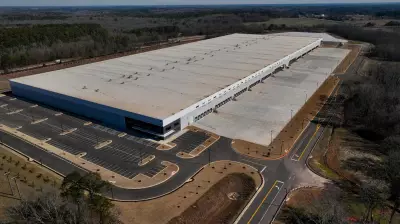
A major artificial intelligence development project proposed for central Alberta is facing significant opposition from Indigenous leaders who say proper consultation never occurred.
The Alexis Nakota Sioux Nation has come forward with serious concerns about the Wonder Valley AI Data Centre, a massive facility planned for thousands of hectares of land near Edmonton. Chief Tony Alexis expressed frustration that his community learned about the project through media reports rather than direct government or corporate outreach.
Traditional Territory at Stake
"This is our traditional territory, our hunting grounds, our ceremonial sites," Chief Alexis stated. "To find out about a project of this scale through the news is deeply disrespectful and violates our rights."
The proposed data centre would occupy approximately 13,000 hectares—an area comparable to the size of Edmonton itself. This scale of development raises environmental and cultural preservation questions that the First Nation says must be addressed through proper consultation processes.
Broader Implications for Resource Development
This situation highlights ongoing tensions between rapid technological development and Indigenous rights across Canada. As AI and technology companies seek large land parcels for energy-intensive data centres, the question of whose land is being used becomes increasingly critical.
The Alberta government's stance on the project remains unclear, though provincial officials have previously emphasized the importance of economic development in the technology sector. However, Indigenous leaders argue that economic progress cannot come at the expense of constitutional rights and proper consultation protocols.
What's Next for the Wonder Valley Project
The Alexis Nakota Sioux Nation has vowed to use "every tool available" to ensure their voice is heard in the development process. This could include legal challenges, public awareness campaigns, and direct engagement with both the project proponents and government officials.
As Canada positions itself as a future leader in artificial intelligence infrastructure, cases like the Wonder Valley Data Centre will test how effectively the country can balance technological ambition with Indigenous rights and environmental stewardship.






